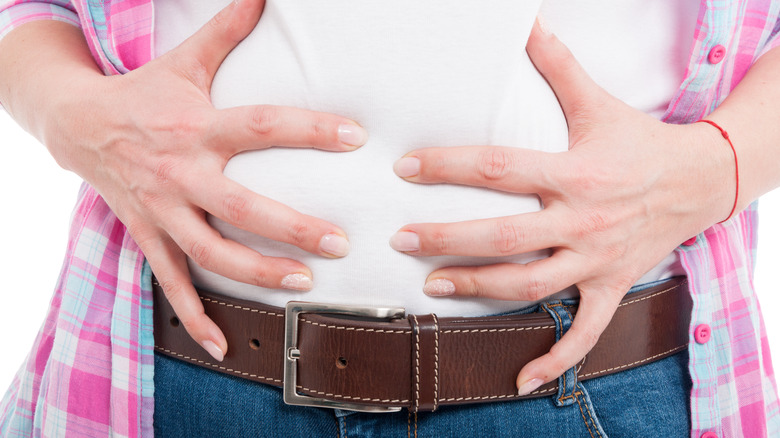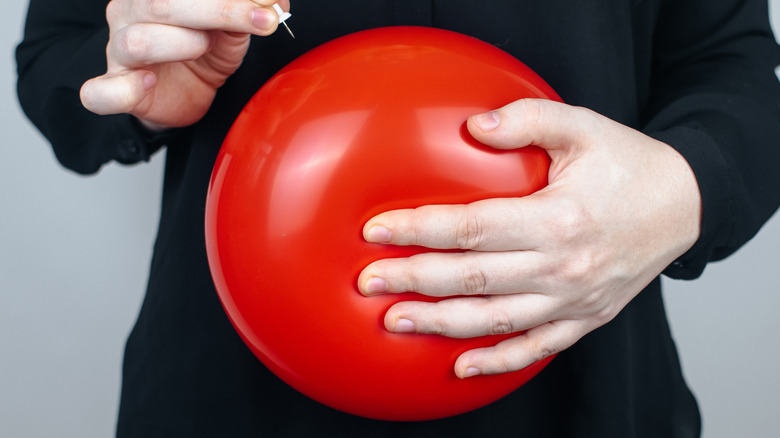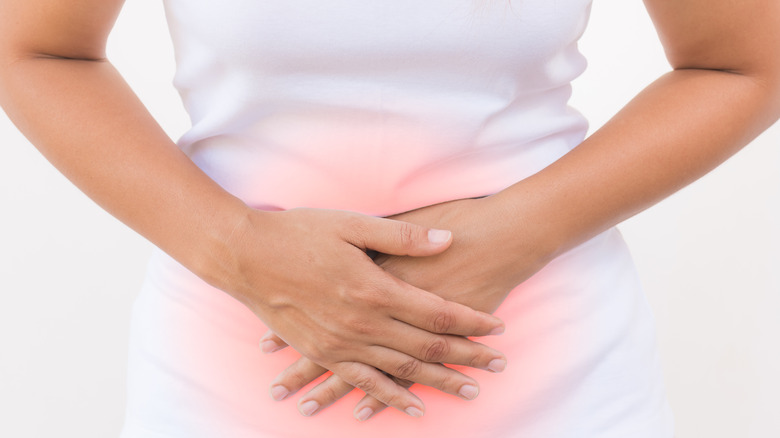How Can You Tell If It's Bloating Or Fat
Your belly looks huge and can even feel huge, like there's nothing more that can go in that space. No, you're not pregnant; you're bloated, which can make you feel heavy and sluggish while also making those jeans impossible to zip. Of course, your mind starts to wonder, "Is this really just bloat or is it fat?" Thankfully, there are a few telltale ways to figure out which one is which.
Fluid or gas trapped in the abdomen causes bloating and is usually a temporary situation. Certain foods can trigger a bloated stomach, including high fiber foods like Brussels sprouts, cabbage, prunes, and onions, according to the University of Pittsburgh Medical Center. If you eat too much, too fast, your stomach can also become bloated. Not only does it cause you to feel the need to unbutton that top button on your pants, it can also feel painfully uncomfortable. In these scenarios, you may understand that you're experiencing bloat and not fat, but here are some more pointers about the unpleasant situation.
The differences between bloating and fat
When your stomach is bloated, you may experience flatulence, rumbling or gurgles in your belly, or frequent burping. While the foods you eat can cause bloating, so can other seemingly innocuous activities like chewing gum or smoking. All of this can cause your abdomen to distend, resulting in bloating, according to Healthline.
One way to know your bloat is not fat is that fat accumulates over a long period of time as a result of excess calories. In addition, you can grab belly fat with your hand, while you cannot do that with bloat, per University of Pittsburgh Medical Center. Remember, bloat is something that can cause your stomach to expand throughout the day as you eat, but will often disappear after you've had time to digest your food correctly. If you want belly fat to disappear, you need to watch your caloric intake and up your exercise, causing fat to melt away gradually.
Remedies for belly bloat
There are some simple things you can do to try to avoid belly bloat, including eating smaller meals, choosing water as your beverage over carbonated drinks like a can of Coke, and chewing and swallowing your food slower. Eating food higher in protein, but lower in carbohydrates might also help, per Healthline.
Some underlying medical conditions can cause bloating, including irritable bowel syndrome (IBS), inflammatory bowel disease, Crohn's disease, heartburn, and intestinal parasite infections, according to Healthline. The bloating may also be caused by more serious conditions like Celiac disease, gluten intolerance, or pancreatic insufficiency, meaning the pancreas doesn't produce enough digestive enzymes. If bloating is accompanied by vomiting, diarrhea, painful and frequent heartburn, excruciating pain, and even weight loss, though, you should immediately see a doctor. You should also seek medical attention if bloating isn't common for you after eating, but starts suddenly occurring, as noted by University of Pittsburgh Medical Center.
With these facts in mind, hopefully you can better understand the difference between fat and bloat, and make more informed decisions about your health.


